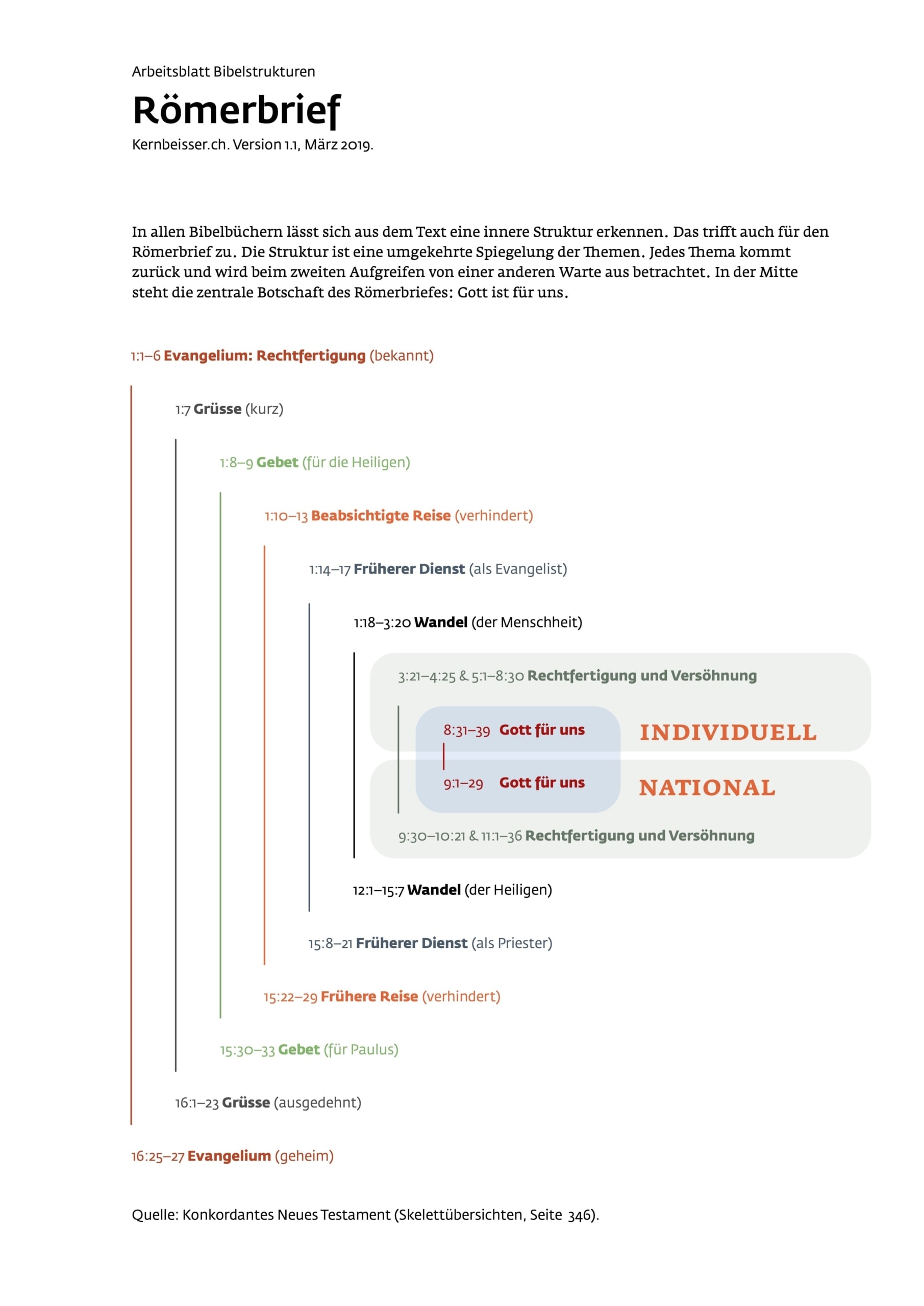God is for us! Short and crisp, Paul gets to the heart of his message. God is for you and me. He is not against us. This is without reservations. God loves unconditionally, gives unconditionally, works unconditionally, and He is for us.
“Now what shall we bring up in response to this? If God is for us, who can be against us? He who spared not His own Son, but gave Him up for us all, how shall He not also with Him grant us all these things in grace?”
Rom 8:31-32
This is the summary, the core of the Letter to the Romans. If God is for us, who can be against us? Because: God is the greatest. What He works, that remains. The picture Paul sketches here is that of an Almighty God who meets us in love in His Son.
The core of the Letter to the Romans
This statement sums up everything Paul has said about God and His Christ so far in the Letter to the Romans. It is the culmination of his gospel (Paul calls it “my gospel” in Rom 2:16 and Rom 16:25).
The Epistle to the Romans has an internal cohesion and structure. This has already been highlighted once. At the very center is this section.
The main burden of the Letter to the Romans concerns two themes: Justification and Reconciliation. Both topics are not mentioned in this way in any other Bible writer. In particular, Paul explains what has changed through the cross and resurrection. Many things have become new. This new reality he explains once individually (he addresses believers in Rome) then also nationally (Israel and the nations in comparison).
At the heart of these statements is that God is for us. This is true both individually and nationally. Here, in Romans 8, we are in the individual part. Paul declares to us, that is, to each of us, that God is for us. This is good news, a “gospel” in the best sense of the word.
How shall I briefly describe the gospel of grace? “God is for us!”.
How shall I briefly describe the gospel of grace? “God is for us!”. It’s simple, memorable and coherent. It is the summary of everything Paul has said so far about justification and reconciliation. Everything led to this one short statement.
With His Son
“Surely He who did not spare His own Son, but gave Him up for us all, how should He [Gott] not also with Him [His Son, Jesus the Christ] grant us all these things in grace?”
Rom 8:32
At every turn, Paul has shown us in the Letter to the Romans that God is at work. His confidence is not based on our attitude of faith, not on what we do or don’t do, but solely on God’s work. And God works in His Son. We consequently believe in the,
“Who raised up Jesus our Lord from the dead, Him who was passed away for our offenses, and was raised again for our justification.”
Rom 4:25
Therefore, we experience and receive this “with Him,” that is, “with His Son,” namely, Jesus Christ our Lord. It is the expression of His grace.
This expression also shows where we can expect it: In Christ. It is not in us, but what God did and accomplished in Jesus is now for us. I can rejoice in this and be grateful for it, even if in my personal experience some things still seem unredeemed. For being still unsaved is also part of our experience, as Paul noted a few verses earlier (Rom 8:23-24). Confidence, however, may grow from God’s action, from gratitude for what He has done in His Son and now gives us with His Son.
We may expect everything from Him, because God is for us.


